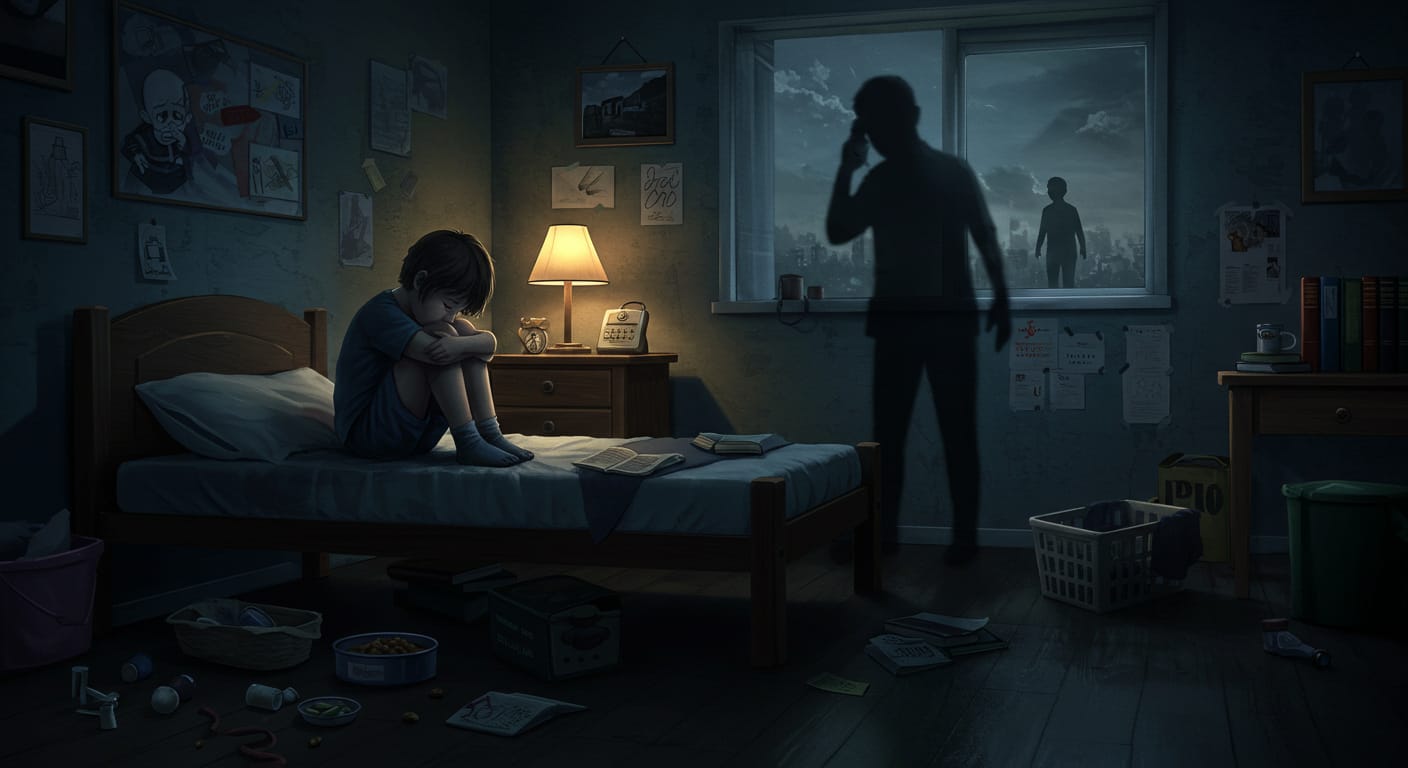Childhood Neglect: Left Alone
Childhood neglect can have serious and long-lasting effects on a child. It often leads to anxiety and depression, as well as antisocial behavior and, in some cases, criminal tendencies.
“Words are, of course, the most powerful drug used by mankind.”
— Rudyard Kipling
What Is Childhood Neglect?
It’s important to understand that not all parents are intentionally neglectful. However, every parent or guardian can benefit from reflecting on their parenting style to ensure they are not unintentionally neglecting their child’s needs. A caregiver might believe they are doing enough simply by providing food and shelter, yet still be falling short in giving the emotional care crucial for healthy development.
Types of Childhood Neglect
Neglect comes in many forms, each with potentially damaging consequences:
-
Physical Neglect
Failure to provide the child with basic necessities such as food, clean water, clothing, and shelter. -
Medical Neglect
Withholding necessary medical care, which may result in worsening illnesses or even death. -
Supervisory Neglect
Failing to monitor the child, leading to dangerous or risky situations that could have been prevented. -
Environmental Neglect
Unsafe or unsanitary living conditions, such as homes filled with clutter, pests, or sharp objects left around. -
Educational Neglect
Not enrolling a child in school or failing to support their academic development. -
Emotional Neglect
Withholding affection, attention, and emotional security, depriving the child of healthy bonds and trust.
Neglect vs. Abuse
Although neglect is not the same as abuse, the two often overlap. An abusive caregiver may also be neglectful—emotionally distant, passive-aggressive, or controlling in harmful ways. Such behavior can lead to significant emotional and psychological damage.
Understanding the Hidden Nature of Neglect
You may wonder how such neglect could occur. In some cases, it’s due to the caregiver’s own mental health struggles, such as depression. Other times, it’s simply a lack of awareness—some parents mistakenly believe that giving their children expensive toys or junk food is enough. Tragically, in some instances, neglect is deliberate.
Children are often reluctant to speak up. They may fear their caregiver, or they may love them and not want to cause trouble. In some cases, they may not even realize they’re being neglected because they’ve never known anything different.
Signs of Childhood Neglect
Neglect can be difficult to identify, but some common warning signs include:
-
Frequent or unexplained injuries
-
Fear of going home
-
Chronic absenteeism from school
-
Untreated illnesses
-
Lack of adult supervision
Outsiders—teachers, neighbors, relatives—play a crucial role in recognizing and reporting these signs. If you notice any of these red flags, it’s vital to alert the appropriate authorities.
The Illusion of “Having Everything”
Some children may appear well-off on the surface. They might have the latest phone, designer clothes, or other material possessions. But beneath the surface, they may be suffering emotionally. What a child truly needs is to feel loved, seen, and valued. No amount of material comfort can substitute for emotional connection.
Single parents or overworked caregivers may be doing their best to provide financially, but without emotional and psychological investment, something vital is missing.
Conclusion: Nurturing the Whole Child
Raising a child is never easy, and there’s no such thing as a perfect parent. But children need more than just physical care—they need attention, affection, structure, and guidance. The entire child—their body, mind, and soul—must be cherished and nurtured.
By being aware, compassionate, and proactive, we can help prevent childhood neglect and protect children from the anxiety, depression, and emotional trauma it can cause.


